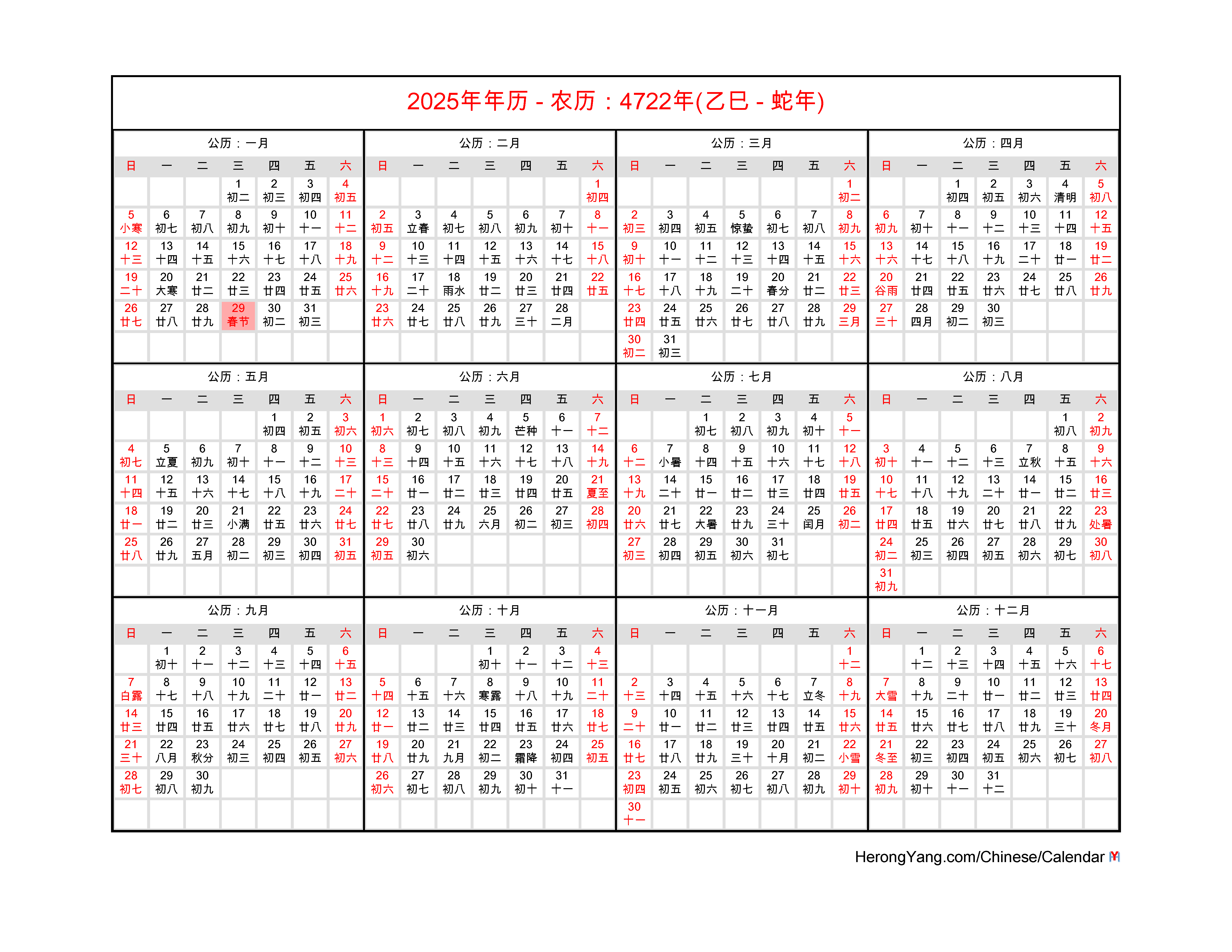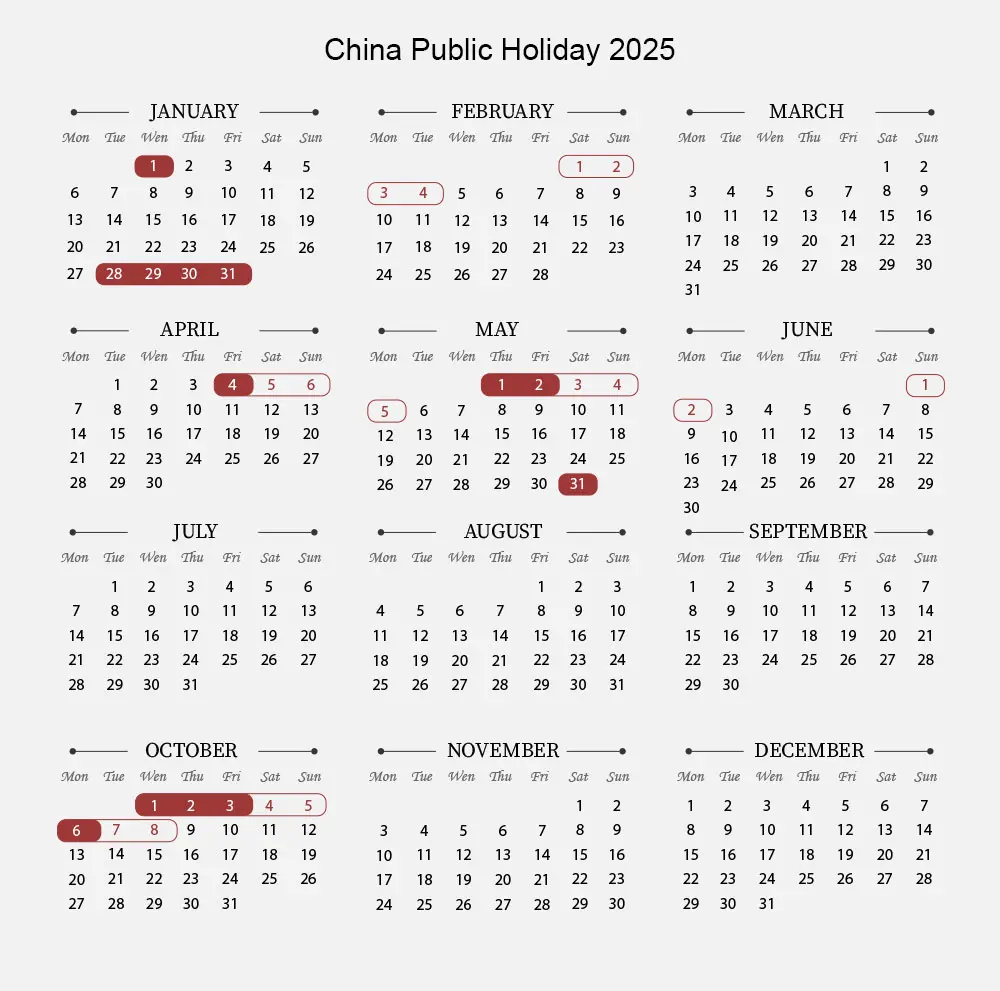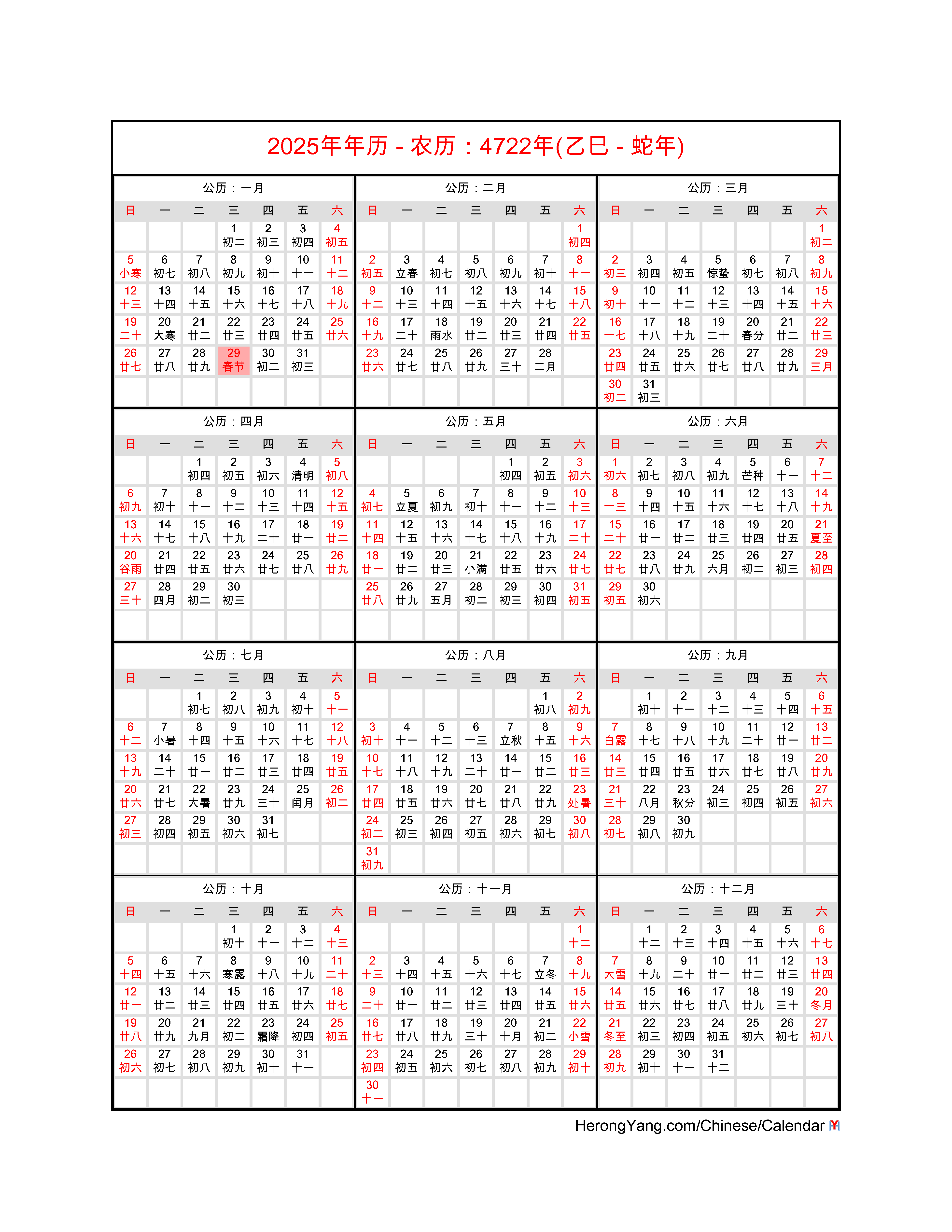Navigating the Tapestry of Chinese Holidays in 2025: A Comprehensive Guide
Related Articles: Navigating the Tapestry of Chinese Holidays in 2025: A Comprehensive Guide
Introduction
In this auspicious occasion, we are delighted to delve into the intriguing topic related to Navigating the Tapestry of Chinese Holidays in 2025: A Comprehensive Guide. Let’s weave interesting information and offer fresh perspectives to the readers.
Table of Content
Navigating the Tapestry of Chinese Holidays in 2025: A Comprehensive Guide

The year 2025 presents a vibrant calendar of Chinese holidays, each steeped in rich history and cultural significance. These celebrations offer a window into the soul of Chinese society, reflecting its values, traditions, and the enduring spirit of its people. Understanding these holidays provides a deeper appreciation for Chinese culture and fosters meaningful connections with its diverse communities.
A Glimpse into the 2025 Calendar:
1. Lunar New Year (January 24, 2025): The most prominent holiday in China, Lunar New Year, also known as Spring Festival, marks the beginning of the new year according to the lunisolar calendar. This joyous occasion is a time for family reunions, feasting, and the exchange of red envelopes filled with lucky money. Traditional customs include lion and dragon dances, setting off firecrackers, and decorating homes with red lanterns and calligraphy scrolls.
2. Lantern Festival (February 13, 2025): The Lantern Festival, celebrated on the 15th day of the Lunar New Year, marks the end of the festive season. It is a time for families to gather and enjoy the beauty of illuminated lanterns. The festival is also associated with the legend of the "yuanxiao," a sweet glutinous rice ball symbolizing unity and togetherness.
3. Qingming Festival (April 4, 2025): Also known as Tomb-Sweeping Day, Qingming Festival is a time for honoring ancestors and remembering the departed. Families visit ancestral graves, sweep tombs, and offer food and incense. This day also marks the beginning of spring and is associated with the planting of trees and flowers.
4. Dragon Boat Festival (June 12, 2025): Commemorating the life and death of the legendary poet Qu Yuan, the Dragon Boat Festival is celebrated with vibrant dragon boat races. The festival is also associated with the eating of "zongzi," sticky rice dumplings wrapped in bamboo leaves, and the custom of hanging calamus and mugwort to ward off evil spirits.
5. Mid-Autumn Festival (September 10, 2025): Also known as the Moon Festival, Mid-Autumn Festival is a celebration of the full moon and the harvest. Families gather to admire the moon, eat mooncakes, and share stories. The festival is also a time for expressing gratitude for the bounty of nature and for the blessings of family and friends.
6. National Day (October 1, 2025): Marking the anniversary of the founding of the People’s Republic of China, National Day is a time for patriotic celebrations. The country comes alive with parades, fireworks displays, and cultural performances. It is a day to reflect on China’s achievements and to look forward to its future.
Beyond the Calendar: The Deeper Significance of Chinese Holidays
These holidays are not mere dates on a calendar; they represent a tapestry of cultural traditions, beliefs, and values. They serve as powerful reminders of the importance of family, community, and respect for history. They provide opportunities for social cohesion, cultural expression, and the preservation of heritage.
The Importance of Understanding Chinese Holidays:
- Fostering Cultural Appreciation: Understanding Chinese holidays deepens our understanding of Chinese culture and its rich heritage. It allows us to appreciate the nuances of Chinese society and to connect with its diverse communities.
- Promoting Intercultural Communication: Knowledge of Chinese holidays facilitates communication and fosters deeper relationships with individuals from Chinese backgrounds. It demonstrates respect for their culture and traditions, building bridges of understanding and mutual appreciation.
- Enhancing Business Relationships: Understanding Chinese holidays is crucial for businesses operating in China or with Chinese partners. It allows companies to navigate cultural sensitivities and to build stronger relationships based on mutual respect and understanding.
FAQs on Chinese Holidays in 2025:
Q: What are the official public holidays in China in 2025?
A: The official public holidays in China in 2025 include Lunar New Year, Qingming Festival, Labor Day, Dragon Boat Festival, Mid-Autumn Festival, and National Day.
Q: How long are the holidays for each festival?
A: The duration of each holiday varies. Lunar New Year typically lasts for a week, while other holidays, such as Qingming Festival, Dragon Boat Festival, and Mid-Autumn Festival, are usually a single day.
Q: What are some common customs associated with each holiday?
A: Each holiday has its own unique customs and traditions. For example, during Lunar New Year, people give red envelopes, set off firecrackers, and perform lion and dragon dances. During the Dragon Boat Festival, people eat zongzi and participate in dragon boat races.
Q: Are there any specific gifts or gestures of respect associated with each holiday?
A: Yes, each holiday has its own specific gift-giving etiquette. For example, during Lunar New Year, it is customary to give red envelopes filled with money to children and unmarried adults. During Mid-Autumn Festival, people often give mooncakes as gifts.
Tips for Navigating Chinese Holidays in 2025:
- Research and Prepare: Take time to learn about the customs, traditions, and significance of each holiday.
- Respect Local Customs: Be mindful of local customs and traditions when celebrating or interacting with individuals from Chinese backgrounds.
- Communicate Openly: If you are unsure about something, do not hesitate to ask for clarification.
- Embrace the Experience: View Chinese holidays as opportunities to learn, grow, and build meaningful connections.
Conclusion:
The Chinese holidays in 2025 offer a unique window into the heart of Chinese culture. Understanding and appreciating these celebrations fosters a deeper connection with Chinese society, promoting intercultural understanding and fostering meaningful relationships. By engaging with these holidays, we can bridge cultural divides, build bridges of empathy, and appreciate the richness and diversity of the human experience.








Closure
Thus, we hope this article has provided valuable insights into Navigating the Tapestry of Chinese Holidays in 2025: A Comprehensive Guide. We hope you find this article informative and beneficial. See you in our next article!